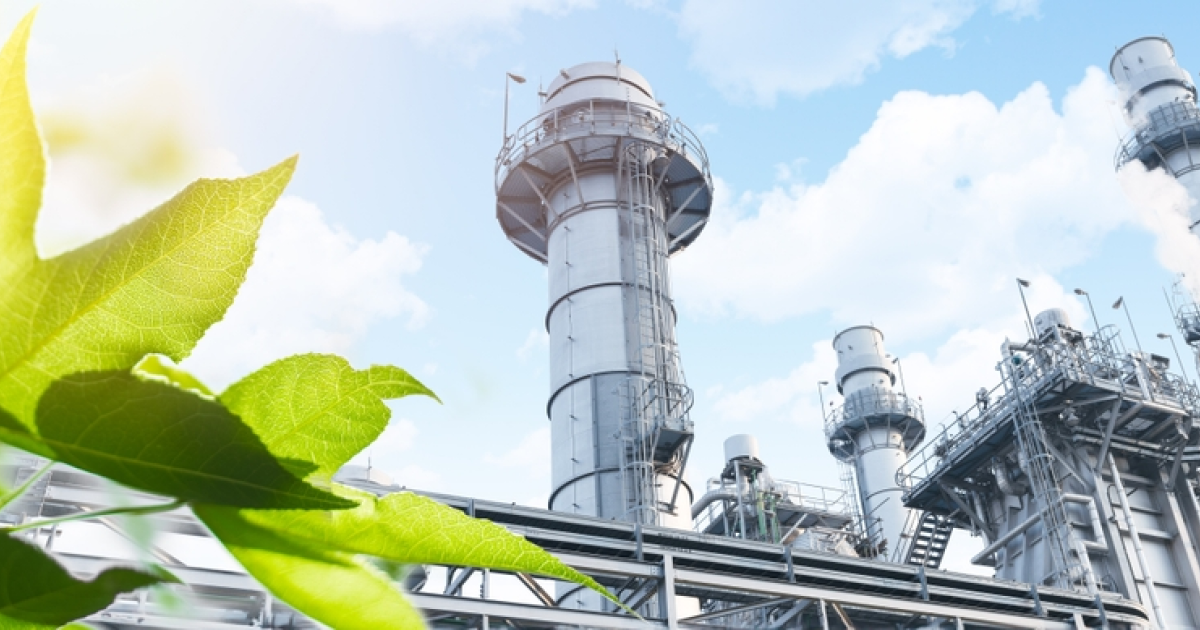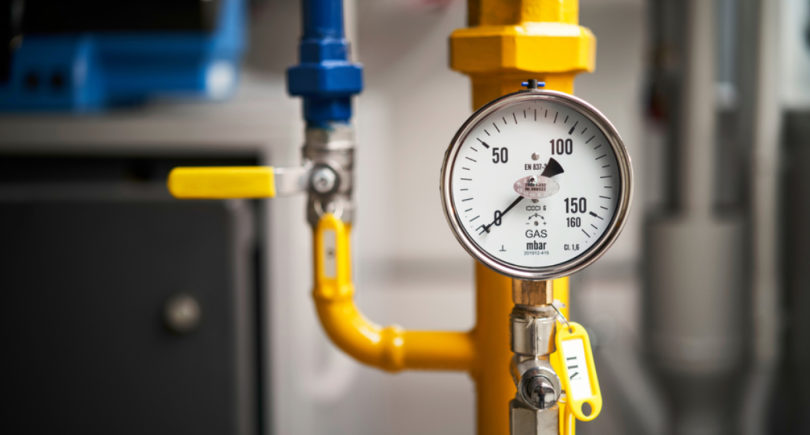
The implementation of the new environmental regulation should take into account the war factor and the general situation in industry
Discussions about reforming the industrial pollution sector have been going on for about 10 years. The issue is important not only because of the urgent need but also because of Ukraine’s commitments under the Association Agreement with the EU and the Ukraine Facility program.
In the second half of June, after a lengthy consideration in the parliament, the relevant draft law was adopted as a basis. However, according to Ukrainian business, this document and the very nature of the introduction of European environmental regulation in Ukraine need to be finalized. The war has drastically worsened the working conditions of industrial enterprises, and the launch of new environmental practices without taking this factor into account threatens a systemic crisis for almost the entire real economy.
The nuances of voting
On June 20, the Verkhovna Rada adopted as a basis the draft law No. 11355 «On Integrated Prevention and Control of Industrial Pollution». This document is identical (except for the number) to the draft law No. 6004-d «On Ensuring the Constitutional Rights of Citizens to a Safe Environment for Life and Health,» which the parliament failed to pass the day before, on June 19, because it lacked only one vote.
The vote failed because many MPs were simply absent from the hall. The parliament quickly corrected its «technical error,» registered a new draft law No. 11355, and voted for it the next day.
But more importantly, the draft law No. 6004-d is part of the commitments under the Association Agreement with the EU and the Ukraine Facility program. It has been discussed and developed in one form or another for about 10 years.
«The draft law is very important in the context of European integration and is crucial for the environmental modernization of our country. Despite the war, Ukraine has already made significant progress in fulfilling the requirements of the environmental and climate section of European integration over the past year,» explains Vladyslav Antipov, Director General of the Center for Ecology and New Technologies Development (CERN).
The essence of the document
The purpose of the draft law No. 11355 is to implement Directive 2010/75/EU on industrial emissions into Ukrainian legislation, although there are certain differences in the way it is implemented.
The draft law applies to enterprises in the energy, metallurgical, cement, oil and gas, pulp and paper, chemical and other industries.
The document provides for the implementation of the following important practices:
- Transition to an integrated permit – a single permit document that should abolish the need to obtain separate permits for air pollutant emissions, special water use and waste treatment. The integrated permit sets specific environmental standards for emissions and waste for enterprises.
- Creating a legal framework for the implementation of the conclusions of the best available technologies and management methods (BATM), i.e. a list of recommended technologies and emission and discharge standards for pollutants determined on their basis, as well as management methods, including environmental management and monitoring.
«These are the same ‘European environmental standards’ for all large industrial enterprises that should radically change the state of the environment in Ukraine’s industrial cities,» says Vladyslav Varnavskyi, Director of Ecology and Industrial Safety at Interpipe.
What’s wrong with the draft law
Draft Law No. 11355 contains several important provisions that, in the opinion of Ukrainian business and metallurgical companies in particular, should be finalized:
1. A flexible mechanism for setting deadlines for BATM implementation is needed.
The maximum possible period for the transition to new environmental standards for existing installations at enterprises of 7 years from the date of application of BATM conclusions proposed in the draft law No. 11355 is not sufficient. The business community proposes to extend the decommissioning period to 15 years.
In the context of the war, the prevalence of outdated production facilities and the lack of investment resources, a significant number of enterprises affected by the reform will not have time to modernize within 7 years and will be forced to shut down their outdated facilities or cease operations altogether.
2. The widest possible range of funding sources should be used.
Financing of large-scale environmental projects that need to be implemented to transition to BAT remains a big question. According to Vladyslav Antipov, many Ukrainian industries are currently operating either on the verge of profitability or even in the red. Enterprises do not have their own funds for such large-scale investments, and it is simply impossible to attract foreign financing for a plant over which missiles fly every day.
3. It is necessary to postpone the entry into force of the law until martial law is terminated or lifted.
Nobody knows when the war will end, and the provisions of draft law No. 11355 provide for its implementation by enterprises from the third quarter of 2025 (within a year after the date of its likely adoption).
«Given these deadlines and the current realities of the war, the state of the country’s economy, these factors create high risks of companies’ inability to comply with the relevant requirements in practice. Given the direct legislative requirement to conduct economic activity on the basis of an integrated permit, the country will face a high systemic risk of being left without functioning critical infrastructure and industry during a full-scale war,» emphasizes Lyudmyla Tsyhanok, President of the Association of Environmental Professionals.
4. It is necessary to extend the validity of existing permits for the operator of the facility for the period of martial law.
The draft law is expected to enter into force in October 2025, while the permits will expire in October 2029, and facility operators must apply for an integrated permit by October 2028. Thus, facility operators are obliged to take certain preparatory actions and finance them during 2027.
«Given the martial law and the state of the country’s economy, it is necessary to extend the validity of permits and the obligation of plant operators to apply for an integrated permit no later than four years from the date of termination or lifting of martial law,» says Lyudmila Tsyganok.
According to ArcelorMittal Kryvyi Rih, this step is logical, as the Ministry of Ecology and the Cabinet of Ministers need to develop and approve a large number of regulations to comply with the law. In particular, it is necessary to approve all sectoral BATM economic norms, on the basis of which the Ministry of Ecology should issue new integrated permits.
5. It is important to exclude the provision on the non-application of the principle of tacit consent in legal relations regarding an integrated permit.
«The rule on «non-application of the principle of tacit consent» in legal relations arising in the process of issuing an integrated permit by a permitting authority is a violation of the guarantee of the legality of actions of business entities in case of failure of the permitting authority to fulfill its obligations to comply with the deadlines for issuing permits and requires withdrawal,» ArcelorMittal Kryvyi Rih emphasizes.
6. The requirement to install automated monitoring systems at facilities that are to be decommissioned in the short term (within 4 years) after the law comes into force should be removed.
Amendment to the domestic situation
At a general level, the Draft Law No. 11355 does not take into account the real economic situation in Ukraine and the losses of the mining and metals sector over almost 2.5 years of war. Thus, the current economic conditions limit the possibility of rapid eco-modernization.
«The biggest imperfection is not in the document, but in the external uncertainty. This draft law is written as if nothing is happening, and we can safely plan the introduction of technological innovations. Today, no Ukrainian company will be able to attract credit funds on adequate terms, nor will it be able to bring the necessary foreign specialists to implement technologies,» says Vladyslav Varnavsky.
Ukraine should adopt European practices, as this is an integral part of its European integration policy and part of the obligations of the Association Agreement with the EU. However, other factors should also be taken into account;
- the European system of business support in the form of multi-billion dollar grants for environmental modernization, while Ukraine does not have such a practice;
- the EU’s achievement of the current level of air pollutant emissions is due to technological modernization, funded, among other things, by EU grants, which has been carried out for almost 30 years;
- EU member states’ enterprises did not face challenges of such a scale as military operations that threaten physical destruction or seizure of production facilities when implementing Directive 2010/75/EU.
The key problem is the inability of enterprises to finance environmental modernization on their own in times of war. Domestic companies do not have access to government support for eco-modernization either domestically or to European funds as an EU candidate.
European companies, on the other hand, have access to the necessary investments for eco-modernization. According to the EBA, in 2000-2022. the EU provided its companies with more than €800 billion in assistance from EU structural funds (grants, cheap long-term loans, tax breaks, etc.) for environmental protection and energy efficiency measures, including the introduction of BAT and the transition to new environmental requirements.
«European practices regarding grants and budgeting for eco-modernization are not applied in Ukraine, which actually means that it is carried out at the expense of business entities. This is quite costly both during the war and post-war periods, as some industrial enterprises, for various reasons primarily related to military operations, are already in survival mode. They simply won’t be able to cover the costs of such modernization within the timeframe set by the draft law,» ArcelorMittal Kryvyi Rih said.
Therefore, the Ukrainian authorities need to make negotiating efforts with the European Union to attract funding for eco-modernization at the expense of European funds within the framework of European integration. why our officials have not yet paid due attention.
In addition, the European Union takes a fairly balanced approach to the implementation of its environmental requirements, providing deviations from the conclusions of the NDTM for years and even for an indefinite period of time, and this does not contradict the provisions of the 2010/75/ЄS Directive.
«Part 3 of Article 14 of the Directive 2010/75/EU defines that the conclusions of the NDTM are a reference for establishing the conditions of permits, and the competent authority can, in certain cases, establish less strict values of maximum permissible emissions. Even after 10 years from the end of the implementation period of the Directive, the derogation is a common phenomenon and is widely used in the EU member states,» Metinvest notes.
Getting out of the situation
Under current conditions, business proposes to finalize the bill No. 11355, taking into account the comments of industry associations. This is important to do as quickly as possible, since the document in the first reading is adopted with a shortened period of preparation for the second.
«I hope that lawmakers will pay attention to problematic aspects when considering the bill in the second reading or these issues should be settled by further by-laws,» Vladislav Antipov notes.
Ukraine needs not just a blind copy of European environmental regulation and mechanisms, but a comprehensive implementation of all existing practices, including investment support. Otherwise, the country faces only the destruction of entire industries, which in war cannot carry out environmental modernization due to lack of own funds.
«To date, the greatest risks that NTM will not be implemented on time are mining and metallurgical complex, energy and cement industry. These industries have very complex production chains, large-scale design and construction work, and also require the most expensive and modern technological solutions, «Vladislav Antipov summarizes.
It is strange that in the realities of war and problems in the economy, on July 3, 2024, the Committee on Environmental Policy of the Verkhovna Rada at its meeting recommended the adoption of bill No. 11355 in the second reading and in general. Neither amendments of deputies nor the position of industry associations and experts were taken into account. Such a formal approach will not help either to modernize the industry or to ensure Ukraine’s integration into the EU.





